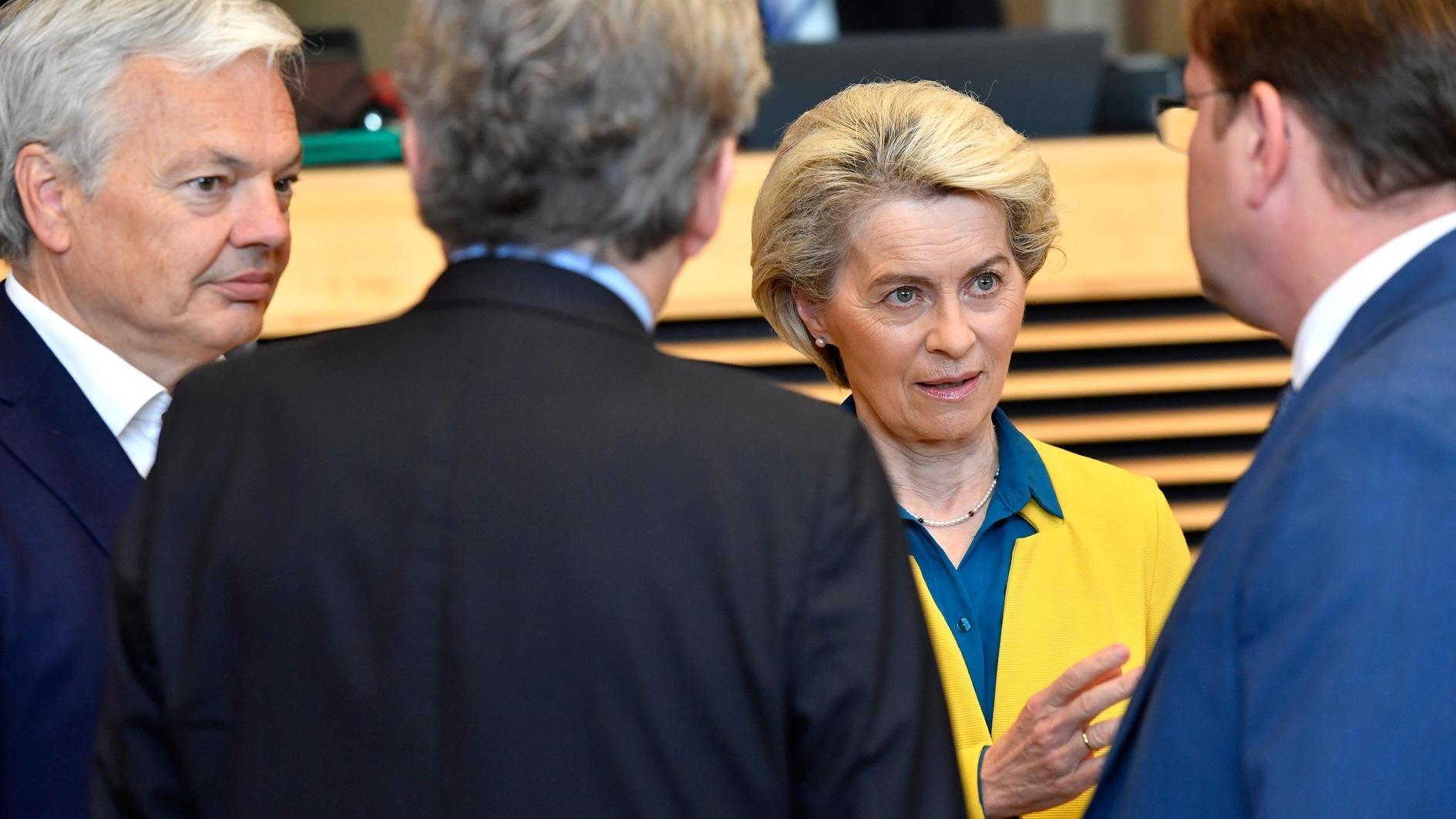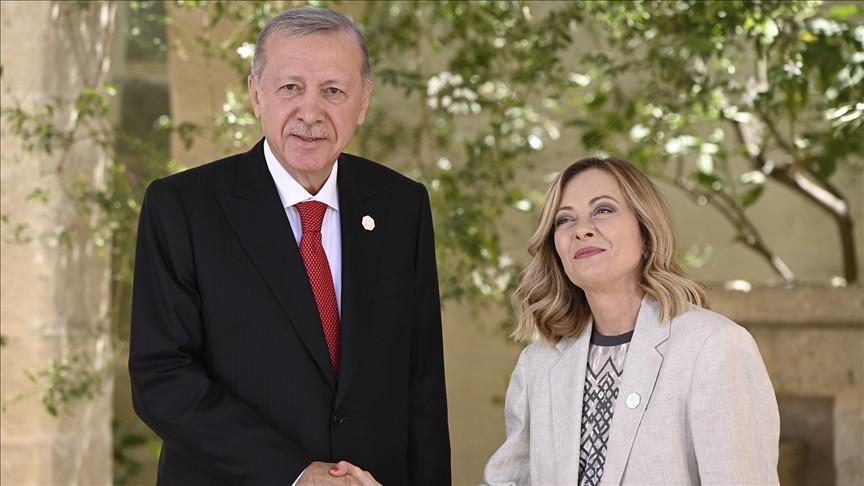France's Breton quits EU Commission in reappointment row
BRUSSELS

European Commission President Ursula von der Leyen, second right, speaks with from left, European Commissioner for Justice Didier Reynders, European Commissioner for Internal Market Thierry Breton and European Commissioner for Neighborhood and Enlargement Oliver Varhelyi during a meeting of the College of Commissioners at EU headquarters in Brussels, on June 17, 2022.
France's powerful European commissioner Thierry Breton on Monday announced he was quitting his role with immediate effect, claiming EU chief Ursula von der Leyen had sought at the last-minute to bar him from her incoming team.
The shock resignation of the bloc's internal market commissioner comes a day before von der Leyen was expected to unveil the makeup of her next commission, in the wake of EU-wide elections in June.
President Emmanuel Macron had put Breton's name forward for France's spot on the EU executive team, and his reappointment to a sizeable role — reflecting the country's weight within the 27-nation bloc — had been taken as a given.
"In the very final stretch of negotiations on the composition of the future College, you asked France to withdraw my name," Breton wrote in a scorching letter to von der Leyen, posted on X.
"In light of these latest developments — further testimony to questionable governance — I have to conclude that I can no longer exercise my duties in the College," he wrote.
"I am therefore resigning from my position as European Commissioner, effective immediately."
The European Commission did not immediately respond to a request for comment.
Breton, whose strained relationship with his EU boss was no secret during her first five years in office, claimed that the request for Macron to pull his candidcay was made "for personal reasons that in no instance you have discussed directly with me".
He said von der Leyen had "offered, as a political trade-off, an allegedly more influential portfolio for France in the future College".
"You will now be proposed a different candidate," he said.
One of the most influential figures in Brussels, Breton has been the bloc's internal market commissioner since 2019 and has taken a hard line against abuses by the world's biggest digital platforms — even sparring publicly with Elon Musk.
His portfolio also included defense and space, overseeing a defense industry push and marshalling the production of Covid jabs.
The former CEO of France Telecom had been tipped to receive a promotion as a commission vice president stewarding industrial growth.
Counterweight
The 69-year-old was seen by Paris as a key counterweight to Berlin's influence at the heart of the EU.
"Over the past five years, I have relentlessly striven to uphold and advance the common European good, above national and party interests," Breton wrote in announcing his resignation.
"It has been an honour."
The centrist Breton has been outspoken in challenging von der Leyen — and caused a stir earlier this year by publicly questioning the depth of support for her reelection within her centre-right European People's Party.
Breton was also one of four commissioners who questioned her "transparency and impartiality" over the appointment of a political ally to a highly-paid post as small and medium-sized enterprises envoy.
"It shows her strength to kill 'powerful' Breton," commented one EU diplomat. "He would not have resigned if Macron had not agreed to change candidates."
"So he lost," the diplomat said, speaking on condition of anonymity, and "she comes out stronger out of this."
How the 27-member commission's portfolios are divided up will send a strong signal regarding the EU's political direction and the relative influence of each member state — after EU parliament elections in June marked by far right gains.
Von der Leyen has been leaning on member countries to put forward more women to make up the bloc's executive arm, after most — including France — ignored her request to offer a choice of male or female candidates.
Following Breton's resignation, the French Green lawmaker Marie Toussaint immediately called on Macron to pick a woman in his stead.
The furore in Brussels came as France awaits the formation of a new government by conservative Prime Minister Michel Barnier, named by Macron as a compromise pick after June elections produced a hung parliament.
















